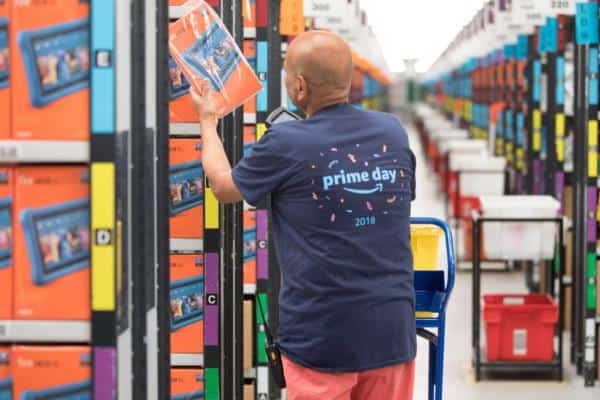Retailers are starting to use artificial intelligence to power both customer engagement and service. Chloe Rigby looks at some early successes
Artificial intelligence (AI) is on the brink of going mainstream in retail because it shows real potential in helping traders give their customers better service. As more retailers are investing in developing their own approaches to AI, commerce platform providers are also adding more and more automated decision making and machine learning to their software. The time is right for businesses of any shape and size to look into the potential of this technology.
AI at work in retail
Retailer Shop Direct is already using AI and machine learning to talk to its customers but has plans to push this further in the next 12 months. Last year, its Very.co.uk brand launched an automated ‘Very Assistant’ within its mobile iOS app that answers shoppers’ customer service questions through a conversational user interface (CUI). Customers can use it to track an order, make a payment, confirm recent payments have been processed, check payment dates and request a reminder of their account number.
The technology, developed in-house with support from IBM Watson, came in response to customer research that found shoppers wanted to engage through a chat-style environment. Group ecommerce director Jonathan Wall says that, “Over 180,000 people have engaged with the chatbot since we launched it late last year. You only need to look at the app review comments to know it’s a feature people love.
“It’s also given us a huge amount of insight as we enter the next phase of its development. We know, for example, that payment queries is the most popular service option and that, within that, next due date is the most requested query.”
The service, he says, saves customers the time of speaking to a sales advisor or browsing an FAQ, while the business benefits from the system’s efficiency and insights.
In the future, pureplay Very will be using IBM’s Watson AI technology to power the Very Assistant. Later this year, customers will be able to ask questions in their own words while the chatbot will offer tailored responses. “Our vision,” says Wall, “is to use an AI-powered chatbot for inspiration and sales too. This will give each customer their own personal shopper that gets to know them better every time they interact. It’s a long-term goal but one we think is achievable with the right investment and skills.”
That might mean using data-powered AI to fully personalise recommendations, with the system picking products it knows the customer will like due to insights gained from browsing habits and previous purchases.
“We think AI-powered chatbots can change etail and allow online to offer everything that stores can do, from customer service to inspiration.
Other brands using AI include Nespresso , which is tapping into chatbot functionality to talk to its shoppers using iAdvize’s conversational commerce platform.
The Anglo-Italian Yoox Net-A-Porter group recently gave insights into its approach to AI when it unveiled a new Tech Hub at London’s White City. The group has been experimenting with the technology since 2015, and says it has the potential to transform areas such as natural language search, image recognition and styling recommendations. Innovations currently being tested include virtual personal styling – a system that learns what type of clothes combine well and can cross-reference suggestions against customer purchase history. Other features are visual search and natural language search, which reveal results that are relevant to each individual customer’s location, size and stock availability.
Neelam Kharay, customer experience analyst marketing specialist at IBM Watson, explained on a recent InternetRetailing/IBM Watson webinar how German fashion and homewares retailer Ernsting’s Family had used IBM Customer Experience Analytics to organise its up-till-then fragmented data in order to better understand their customers. Kharay said: “With customer experience analytics, Ernsting’s Family was able to better use behavioural patterns, insights on customer habits and preferences to build segments and personas that helped them not only understand their customers but also personalise their marketing efforts.
“They are working towards building a single customer view for each individual customer that encompasses all touchpoints across all channels. With that they will be able to optimise each campaign, which will generate more efficient ROIs and automate measurement performance.”
Meanwhile, the recent IREU Top500 Performance Dimension Report on Operations & Logistics focused on how German company the Otto Group is using AI to streamline its supply chain and cut delivery times, using Blue Yonder technology to map future customer demand and automate replenishment in response.
These retailers are all early adopters of AI. As Shop Direct’s Wall says, “We’ve worked hard to be one of the leaders in this space and we intend to remain at the forefront.”
Moving the mainstream
Now that AI is becoming more easily available to retailers of all sizes, marketing platform providers are responding by adding AI and machine-learning functionality to more of their products. Among them is Salesforce Commerce Cloud , which has added new Einstein-branded innovations to improve, among other things, the retailer’s view of the customer in a mobile-first environment. It generates merchandising, product recommendations and joined-up order management that can connect the shopper at the location where it is most cost-effective.
Jamie Merrick, head of industry insights at Salesforce Commerce Cloud, says, “If you have that single view of the customer, you can see what they’ve previously bought and been browsing, which gives you the opportunity to give them what they want by making the experience more personal. AI can surface recommendations to help the in-store associate give more. In certain circumstances, you could see that staff could use mobile devices to talk to customers as they browse the shelves.
“Then, if you don’t have what they want in that store, you can find it for them and arrange delivery options, all from a single system. You’re putting some sales power back into the hands of the store associates.”
Meanwhile Emarsys has released AI-powered marketing software with modules focused on automation, insights, prediction and smart content. Practical applications include enabling retailers to understand what offer would best help their customers convert, or at what time email campaigns should be sent.
“If you had to match each customer to the right offer it would be impossible to do manually,” says Raj Balasundaram, global head of solution consultants at Emarsys. “It would be too huge, so that’s where the machines come in. AI is a way of matching patterns, solving problems and putting the right offer in front of customers. It’s one way our customers have seen a huge difference.”
He says that AI also makes a difference when it makes things available to consumers at speed. “AI helps to understand the customer’s aims, their interaction patterns and the channels that are more likely to satisfy customers’ needs, whether that’s email or via mobile. It’s serving the customer in the way they want to be served.”
Emarsys customer action sports retailer FreestyleXtreme is one of the medium-sized traders now able to use AI in its day-to-day operations. The retailer was founded from a garden shed in 2003 and now serves 0.5m customers in 60 markets, including 14 in Europe. FreestyleXtreme builds individual customer profiles based on their preferences and previous omnichannel interaction. It takes staff just two hours to send emails
to its entire customer base in 14 languages, down from two days previously. As a result of using Emarsys’ Predict Web recommendations, its website revenues have increased by 8%, with the software directly contributing to 4.2% of total revenues.
Shaun Loughlin, managing director of FreestyleXtreme, says the software has helped the business to personalise customer communications through local language emails, while ensuring that the home page is relevant to each customer. “It’s clearly working,” he says. “Not only are we helping more people get into the sports and lifestyle scenes that we’re passionate about, but we’re also directly increasing revenue as a result of the personalisation at scale that Emarsys has helped us achieve.”
Webgains is one of the first affiliate marketing businesses to partner with IBM and its AI-powered Watson capabilities. Chief executive Richard Dennys looks forward to a time when AI will enable retailers to become more efficient, while improving front-line customer service. He expects that take-up will be fast, with significant implications.
“Soon, everyone will be clamouring to enter the AI space and this will present a new challenge for businesses as they race to upskill and train their staff. It is important to remember that the technology is only as good as the people behind it.”




